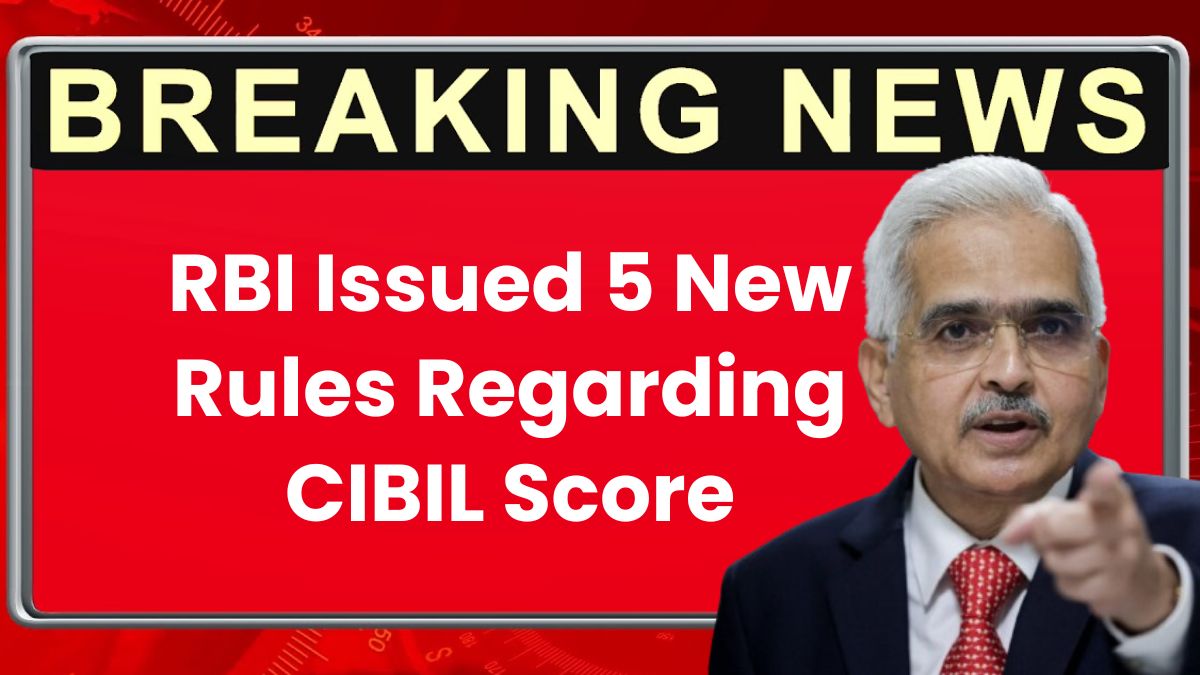If you are planning to take a loan or are already paying EMIs on an existing one, then this update is very important for you. The Reserve Bank of India (RBI) has announced new rules related to the CIBIL score. These rules have come into effect from January 1, 2025. The aim of these changes is to make the credit system more transparent and to increase accountability for banks and financial institutions. Let’s understand these rules in simple words.
What is a CIBIL Score?
A CIBIL score is a three-digit number that ranges between 300 and 900. It is based on your credit history—like how regularly you repay loans, your credit card usage, and more. The higher your score, the better your chances of getting a loan. A good score shows that you are a responsible borrower.
CIBIL Score Range and Its Meaning
| Score Range | Meaning |
|---|---|
| 800–900 | Excellent – Loan approval is very easy |
| 750–799 | Good – You can get a loan at a low interest rate |
| 700–749 | Fair – You may get a loan, but terms might be strict |
| 650–699 | Average – Getting a loan can be difficult |
| 600–649 | Poor – Loan approval is unlikely |
| 300–599 | Very Poor – Very low chance of getting a loan |
New Rules Announced by RBI
1. CIBIL Score Will Be Updated Every 15 Days
Earlier, CIBIL scores were updated once a month. From now on, your score will be refreshed every 15 days. This means you can track changes in your credit score more frequently and take quicker action if it drops.
2. Customers Will Be Notified When Their Score Is Checked
If a bank or any financial company checks your credit report, they must inform you through an SMS or email. This keeps you aware of who is checking your credit data and helps prevent unauthorized inquiries.
3. Disputes Must Be Resolved Within 30 Days
If you find any mistake in your credit report and file a complaint, the concerned institution must fix the error within 30 days. If they fail to do so, they will have to pay a penalty of ₹100 per day. This makes the correction process faster and more reliable.
4. Appointment of a Nodal Officer
Every bank and financial institution must appoint a nodal officer. This officer will be responsible for handling complaints related to the CIBIL score. It will help in quicker and smoother resolution of issues faced by customers.
5. More Transparency and Accountability
These new rules will bring transparency in how credit scores are managed. Customers will get more control over their credit reports, and their scores will no longer be affected by unnecessary or hidden credit checks.
How to Improve Your CIBIL Score?
Pay EMIs and Bills on Time: Always pay your loan EMIs and credit card bills before the due date.
Limit Credit Card Usage: Try to use less than 30% of your credit limit.
Check Your Credit Report Regularly: Look for any mistakes and report them quickly.
Keep Old Loans or Cards Active: A long and clean credit history helps improve your score.
Maintain Loan Variety: Having different types of loans (personal, home, credit card) can boost your credit health.
Conclusion
The new rules by RBI are a big step towards protecting borrowers and ensuring fair practices by banks. These changes will help you stay better informed and manage your credit score wisely. If you are planning to take a loan or already have one, keeping track of your CIBIL score and understanding these new rules will help you in the long run. A good credit score is the key to getting better financial deals, so follow the rules, pay on time, and stay alert.





